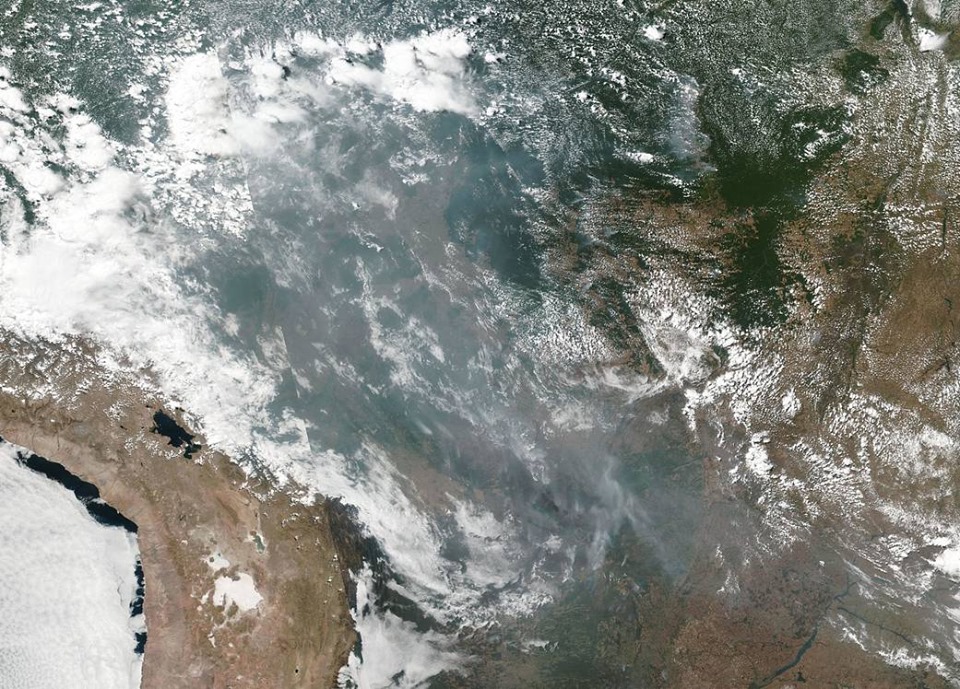
OTTAWA — Canada’s offer of money and water bombers to help Amazon countries battle raging wildfires threatening the “lungs of the planet” is still being assessed by Brazil and other nations in the Amazon basin, Canadian officials say.
Adam Austen, a spokesman for Foreign Affairs Minister Chrystia Freeland, said Tuesday the $15 million Canada has put on the table itself is distinct from US$20 million in firefighting money offered to the South American nations at the end of the G7 leaders’ summit in France Monday.
Brazil’s President Jair Bolsonaro has rejected the G7 offer amid a spat with French President Emmanuel Macron but Austen said Brazil, Bolivia and other countries affected by the fires are still looking at the separate proposal from Canada.
“Countries are currently assessing their needs and Canada stands ready to help,” Austen said.
There has been much confusion even within the Canadian government about exactly what Canada has offered to help with the fires and exactly what Bolsonaro has rejected. In fact, 24 hours after the G7 leaders hurriedly announced their monetary offer at the end of their meetings in France, Freeland’s office still wasn’t sure how much Canada was contributing to it.
Environment Minister Catherine McKenna also was under the impression that Bolsonaro’s rejection covered Canada’s offer after reports he wouldn’t accept the G7 cash unless Macron apologizes for an aide’s calling Bolsonaro a liar over previous climate-change commitments.
McKenna told reporters in Toronto it was a shame Bolsonaro had rejected the money but that other countries in the Amazon region would be willing to accept the help. She said Environment Canada is already helping Argentina with technology to map how air pollution disperses, as it deals with smoke lingering in the air from the massive number of fires.
McKenna’s spokeswoman later said Freeland’s office had more current information than McKenna did.
There has been a sharp rise in the number of fires burning in the Amazon this year, a fact environmental scientists blame on rapid deforestation under Bolsonaro. The Brazilian president denies his policies have anything to do with the fires, blaming them on everything from weather to activists trying to discredit him.
At 5.5 million square kilometres, the Amazon rainforest is covers an area more than five times the size of Ontario. Much of it is in Brazil but it extends into several neighbouring countries.
It is a critical area for both the earth’s climate and the species that inhabit the forest itself. The Amazon produces one-fifth of the world’s oxygen supply, is home to one-fifth of its fresh water and half of all the planet’s animals, plants and insects. It also works as a significant carbon sink, with its growing plants absorbing vast amounts of carbon dioxide every year.
If the rainforest burns it releases some of that stored carbon, and with fewer trees it is unable to absorb as much. Scientists also report that the amount of carbon dioxide the Amazon can absorb has fallen by at least one-third, partly due to logging and agricultural activities and partly due to damage caused to the remaining trees from other influences.
Macron and other G7 leaders put the Amazon fires on their weekend agenda, resulting Monday in the announcement they would jointly provide the US$20 million to help fight the fires across the Amazon.
A Canadian official, speaking on background because he was not authorized to discuss the matter publicly, indicated that separate from the G7 summit, Canada considered its own assistance after Brazilian authorities quietly began making inquiries about what Canada might do to help last week. Those inquiries resulted in the $15 million Prime Minister Justin Trudeau announced while still in France for the G7 summit Monday.